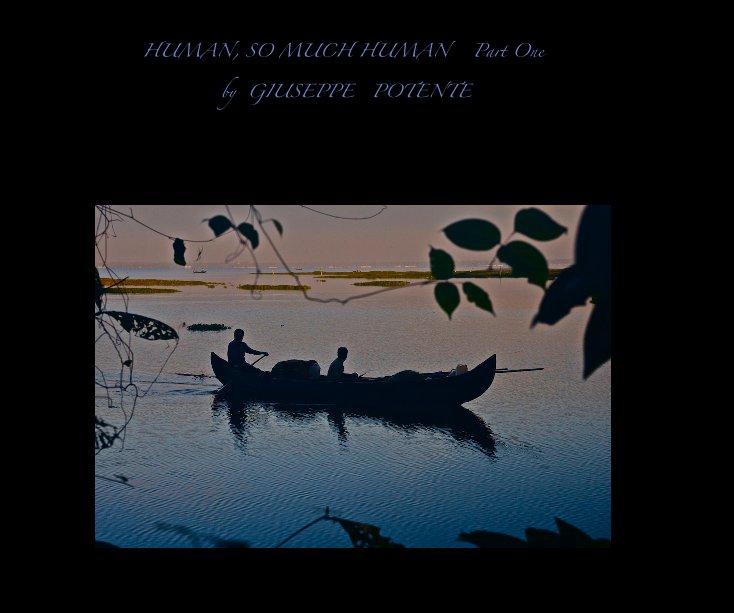HUMAN, SO MUCH HUMAN Part One by GIUSEPPE POTENTE
von Giuseppe Potente
Dies ist der Preis, den Ihre Kunden sehen. Listenpreis bearbeiten
Dieses Buch kann bei Amazon gekauft werden.
Über das Buch
Given my conceptual resistance to make yet another travel book about India, I wanted to give the work a more philosophical imprint, in the desire to express how the trip in the cities and in the Indian countryside is the zenith of a longer journey to find us themselves and others. I paraphrased the famous title of Nietzsche: Human, All Too Human.
I always thought that Gandhi preached non-violence in India just because the violence was widespread, and still is, to read the news and the Indian narrative. The writer Arundhati Roy recently stressed the situation: all India is ruled by a caste-based oligarchic system. This oligarchic system based on the violent dominance of the upper castes, has lasted for thousands of years. The only mode of change has so far expressed by the violence of the lower castes against the upper castes of millennial violence, as it is masterfully told by Aravind Adiga in the book "The White Tiger" (Booker Prize 2008). While the widespread and almost never denounced violence by men against women of lower caste "Dalits" shows how the "untouchability" of the lower castes is just a sham for purposes of power, social and economic.
We cannot change abruptly this social system. This book is based instead on the peaceful life of the humble, comforting our quest for non-violence.
It gave me a great peace of mind to exchange my gaze with the lowly happy to have a sidewalk to sleep.
The King is naked. The Monkey is naked. Our humanity must not be removed.
I always thought that Gandhi preached non-violence in India just because the violence was widespread, and still is, to read the news and the Indian narrative. The writer Arundhati Roy recently stressed the situation: all India is ruled by a caste-based oligarchic system. This oligarchic system based on the violent dominance of the upper castes, has lasted for thousands of years. The only mode of change has so far expressed by the violence of the lower castes against the upper castes of millennial violence, as it is masterfully told by Aravind Adiga in the book "The White Tiger" (Booker Prize 2008). While the widespread and almost never denounced violence by men against women of lower caste "Dalits" shows how the "untouchability" of the lower castes is just a sham for purposes of power, social and economic.
We cannot change abruptly this social system. This book is based instead on the peaceful life of the humble, comforting our quest for non-violence.
It gave me a great peace of mind to exchange my gaze with the lowly happy to have a sidewalk to sleep.
The King is naked. The Monkey is naked. Our humanity must not be removed.
Eigenschaften und Details
- Hauptkategorie: Kunst & Fotografie
-
Projektoption: Standard-Querformat, 25×20 cm
Seitenanzahl: 138 -
ISBN
- Hardcover mit Schutzumschlag: 9781320013123
- Veröffentlichungsdatum: Mai 15, 2014
- Sprache English
- Schlüsselwörter Human condition, Non violence, Arundhati Roy, Aravind Adiga, India
Mehr anzeigen
Über den Autor
Potentephoto
Rome, Italy
I work as free lance photographer and photojournalist on my personal projects, but available for portraits and other assignments, in other fields, as events, food photography, art photography, sport photography, fashion photography. I can use many cameras, depending by the project.


